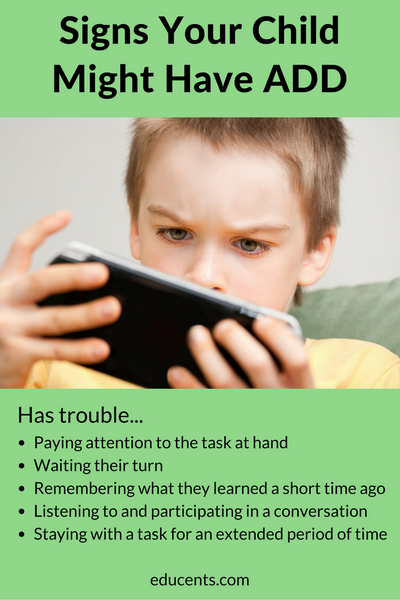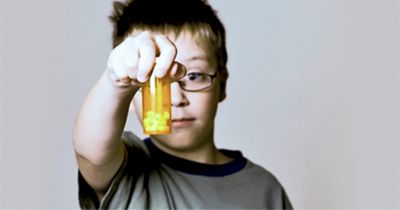Attention deficit disorder and add are two similar but dissimilar developmental conditions which can occur in both children and adult.

The two conditions are often characterised as mental developmental disabilities that result in significant problems in concentration, impulsivity, and repetitive behaviour. The symptoms of ADD and ADHD include poor performance at school, impaired self-care, poor concentration, poor academic achievement, impaired relationships with peers and teachers, and increased risk for substance abuse, suicide attempts, depression, and substance abuse.
Both add and ADHD can be treated in a number of different ways. Children who have ADD will usually need to take psychostimulants or psychostimulant drugs in order to alleviate the symptoms of ADD. Medication for ADD is usually prescribed by a health care professional who is experienced with this particular condition.
Children who have ADHD or ADD often struggle with their emotions and have trouble focusing on a task at hand in their adult’s life, so it is important that they find activities that allow them to control their thoughts and focus on a single task at a time. One way to help treat ADD is by introducing activities into their daily routine that encourages focus and concentration.
Some of the more common symptoms of ADD include hyperactivity, difficulty sitting still, impulsiveness, poor concentration, poor problem solving skills, and problems with remembering things. While these symptoms are common among children, they are not always present with ADHD. This can make it difficult for ADHD children to accurately diagnose what is causing their ADD symptoms. In addition, ADHD children can have very similar symptoms as other children in their environment, so they do not always know that their symptoms are different from other children’s symptoms.
If your child or adult with ADD experiences any of the following symptoms, they may be suffering from ADD or ADHD: being distracted, talking excessively, fidgeting, speaking in one voice, losing sleep over little things, or not being able to concentrate, and acting very disjointed. If you or someone you know has these symptoms in their child or adult with ADD, it is important to seek medical help. since the condition can be debilitating. Not only can ADD and ADHD cause a child or adult to lose their freedom, but it can also lead to other learning and behavioural problems.
ADD and ADHD can also lead to substance abuse. If a parent suspects that their child or adult with ADD is using drugs, stimulants, or alcohol, they should seek treatment right away. Because ADD and ADHD are often treated by medication, they may try to hide their addiction by masking their symptoms with other behaviours or by acting differently than they normally do.

When they are caught, they can be treated through psychostimulants, or sometimes even prescription drugs. Some medication treatments for ADD include benzodiazepines, which is often used as a sedative or tranquilizer.
Another common method of treating ADD and ADHD is through psychotherapy. Therapists can help a child or adult with ADD discover their inner child and learn to deal with their symptoms. Cognitive behavioural therapy can teach children or adults how to identify the triggers that cause their ADD symptoms, how to monitor their behaviours and reactions to external stimuli, and how to change unhealthy thought patterns so that they can better control their emotions. There are a variety of psychotherapeutic methods for treating ADD. The goal of most psychotherapies is the same: to improve the patient’s thinking and behaviour to relieve their symptoms.
A psychologist may want to teach your child or adult with ADD how to socialize with others and be more successful socially. This will involve helping them learn to take part in physical and social activities with friends. It is also important for them to learn to work on problem-solving skills, so that they can be effective in school and at home.
Therapy can also help an adult to cope with changes in their adult’s life. An adult with ADD may find that they have trouble managing money, stress and job responsibilities and relationship difficulties. Because many adult ADD symptoms can also be symptoms of depression, therapy can teach the adult how to deal with their feelings of depression and anxiety. and how to cope with other stressors in their life. Some psychotherapists will also teach them how to manage their emotions and use their social skills more effectively.
Medications have been proven to reduce some of the symptoms of ADD and ADHD. However, it is important to understand that ADD and ADHD cannot be cured. They can, however, be managed effectively through therapy, education, social skills training, and behavioural management to help your child or adult with ADD live a happier and healthier life.